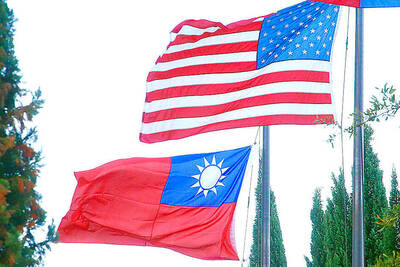Mexican President Felipe Calderon said on Sunday that the government would eliminate tariffs on wheat, corn and rice as part of a plan to counter rising food prices that have provoked street protests.
Calderon blamed high food costs on global factors, including rising energy prices, soaring food demand in China and India and the use of corn for ethanol production.
But some Mexicans point to the elimination of import protections under the North American Free Trade Agreement, or NAFTA, and several agricultural leaders said Calderon’s initiative would only hurt national producers.
Calderon, a conservative elected in 2006, also said a quota of beans would be imported tax-free and duties on powdered milk would be slashed by half. Tariffs will also end for sorghum and soy pasta.
“We will not allow the poorest families to pay the consequences of a situation created beyond our borders,” he said.
The president promised several measures to help farmers, including modernizing irrigation systems for 214,000 hectares by the end of the year. He said that would be three times faster than the current rate of 60,000 hectares per year.
Calderon said the government would abolish duties on nitrogen fertilizer and chemicals needed to manufacture fertilizer.
And he promised a preferential credit system to help about 500,000 small farmers buy fertilizer and pay after the harvest.
Mexico’s consumer prices rose 4.55 percent in the 12 months ending last month, led by the cost of tomatoes, chicken, bread, avocados, plantains and cooking oil. It was the biggest inflation increase since 2005. Last year, tortilla prices doubled, in part because of the US ethanol boom, provoking street protests.
On Sunday, farm groups accused Calderon of offering only short-term solutions that would do little to help consumers and would hurt producers.
“The government is making emergency imports, but its policy is not accompanied by a serious reflection of the failure of Mexican agriculture,” said Margarito Montes Parra, secretary-general of the General Union of Workers and Peasants.
Small farmers have long complained about dwindling government support programs such as state purchasing agencies and distribution networks.

NATIONAL SECURITY: The Chinese influencer shared multiple videos on social media in which she claimed Taiwan is a part of China and supported its annexation Freedom of speech does not allow comments by Chinese residents in Taiwan that compromise national security or social stability, the nation’s top officials said yesterday, after the National Immigration Agency (NIA) revoked the residency permit of a Chinese influencer who published videos advocating China annexing Taiwan by force. Taiwan welcomes all foreigners to settle here and make families so long as they “love the land and people of Taiwan,” Premier Cho Jung-tai (卓榮泰) told lawmakers during a plenary session at the Legislative Yuan in Taipei. The public power of the government must be asserted when necessary and the Ministry of

Proposed amendments would forbid the use of all personal electronic devices during school hours in high schools and below, starting from the next school year in August, the Ministry of Education said on Monday. The Regulations on the Use of Mobile Devices at Educational Facilities up to High Schools (高級中等以下學校校園行動載具使用原則) state that mobile devices — defined as mobile phones, laptops, tablets, smartwatches or other wearables — should be turned off at school. The changes would stipulate that use of such devices during class is forbidden, and the devices should be handed to a teacher or the school for safekeeping. The amendments also say

CONSISTENT COMMITMENT: The American Institute in Taiwan director said that the US would expand investment and trade relationships to make both nations more prosperous The US would not abandon its commitment to Taiwan, and would make Taiwan safer, stronger and more prosperous, American Institute in Taiwan Director Raymond Greene said. “The US’ commitment to Taiwan has been consistent over many administrations and over many years, and we will not abandon our commitment to Taiwan, including our opposition to any attempt to use force or coercion to change Taiwan’s status,” he said in an exclusive interview with the Liberty Times (the sister newspaper of the Taipei Times) on Friday last week, which was published in the Chinese-language newspaper yesterday. The US would double down on its efforts

EMBRACING TAIWAN: US lawmakers have introduced an act aiming to replace the use of ‘Chinese Taipei’ with ‘Taiwan’ across all Washington’s federal agencies A group of US House of Representatives lawmakers has introduced legislation to replace the term “Chinese Taipei” with “Taiwan” across all federal agencies. US Representative Byron Donalds announced the introduction of the “America supports Taiwan act,” which would mandate federal agencies adopt “Taiwan” in place of “Chinese Taipei,” a news release on his page on the US House of Representatives’ Web site said. US representatives Mike Collins, Barry Moore and Tom Tiffany are cosponsors of the legislation, US political newspaper The Hill reported yesterday. “The legislation is a push to normalize the position of Taiwan as an autonomous country, although the official US